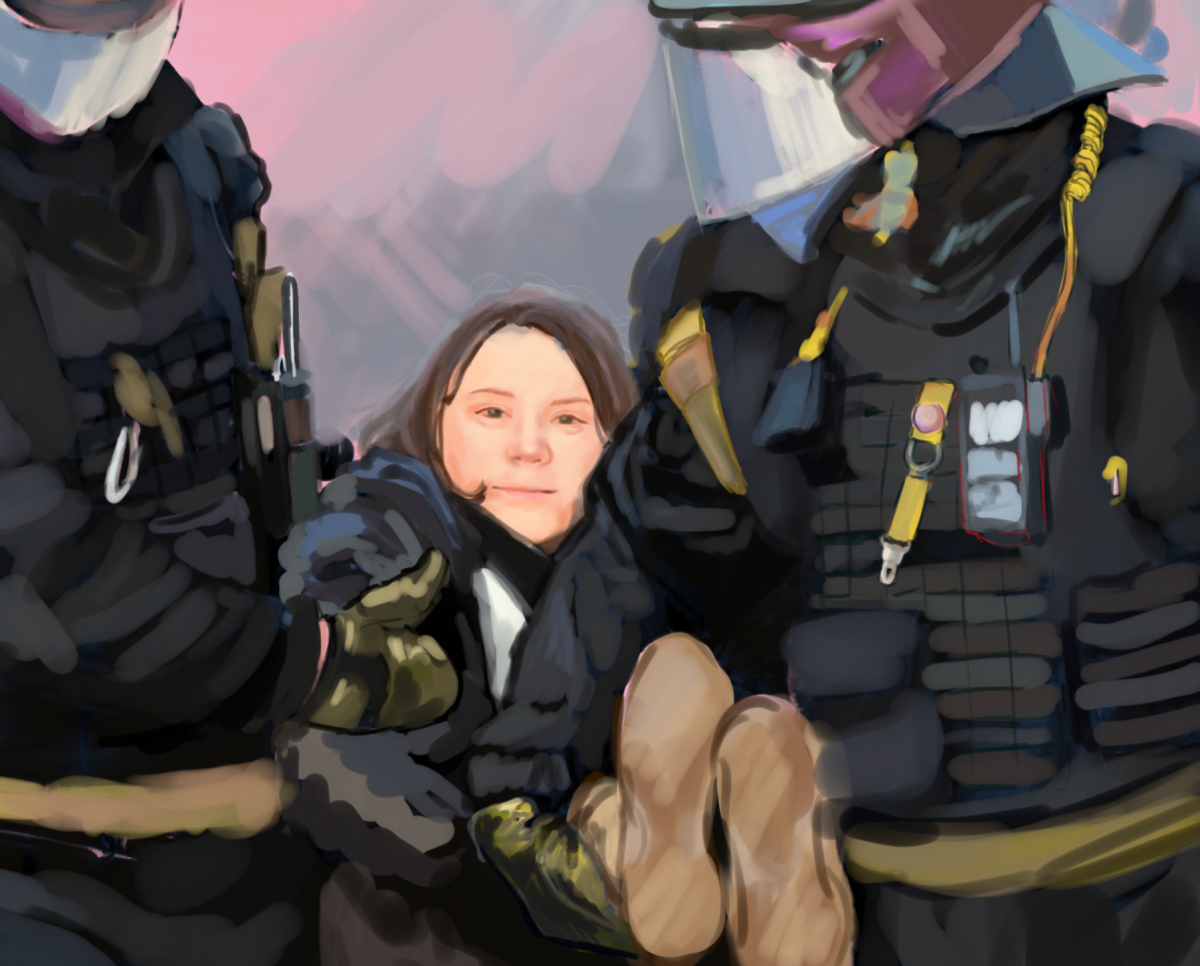Greta Thunberg, a 20-year-old Swedish activist, and other protestors at a coal mine protest in Lützerath, Germany, were detailed by police on January 17, causing international uproar.
Thunberg and a number of other activists broke past a police barrier and entered a danger zone at the edge of an excavation area while protesting an expansion of the Garzweiler coal mine. They were taken into custody and released later that evening. The next day, Thunberg defended her actions, tweeting, “Climate protection is not a crime,” and resumed campaigning online.
Lützerath is a small village in North Rhine Westphalia state, located about 9 km from the coal mine. Since the German government announced plans to expand coal mines in 2013, residents and activists have protested, establishing the Lützi bleibt (“Lützerath stays”) movement.
However, in February 2021, the German government reached an agreement with RWE, the electricity generation company who owns the mine, that permitted expansion of the mine into Lützerath. RWE justified the expansion, saying it “needed to operate the lignite fleet at high capacity during the energy crisis and also to extract sufficient material for high-quality recultivation.” Last Tuesday, an official eviction order was given to residents, igniting protests among over 15,000 activists.
The Garzweiler coal mine produces lignite, “the most health-harming form of coal” according to The Health and Environment Alliance (HEAL). This type of coal is responsible for nearly 20% of Germany’s carbon emissions, so the situation in Lützerath has concerned environmentalists across the world. Activists call the recent agreement by the German government to allow the expansion “a betrayal” of pro-environment legislative decisions and promises made in the past. For instance, in August 2020, the Coal Phase-Out Act promised to end the use of coal-powered energy in Germany by 2038; in November 2022, the German government announced an accelerated exit from coal production, changing the target to 2030.
While many showed support for Thunberg after the incident, some accused her of staging the arrest after a video filmed by a journalist from the Reuters news agency was posted online. Some people claimed she negotiated with the police and pretended to get arrested in order to gain more attention. People attacked her on Twitter with comments like, “It’s all for the camera” and “Does she know her clothes are made of fossil fuels?” The German police confirmed the arrest was not staged, saying, “We would never [allow] ourselves to make such recordings; we are not the extras for the staging of Greta Thunberg.”
Mr. Mario Williams, instructor in Environmental Science, said, “Despite any controversy surrounding her actions, Thunberg has galvanized young people on an unprecedented scale with regards to climate issues, and has created a blueprint that champions the inclusion of underrepresented voices in political discussions that were formerly more limited in nature. [Students should] become more educated about climate change and its global impacts, so that they are more prepared to meaningfully engage in conversations about the issue and to critically evaluate information that is relevant to the topic.”
Emily Iorio ’23, head of Students for Environmental Action (SEA), said, “I think that Hotchkiss students need to realize the impacts that they can have as individuals. A lot of people I’ve talked to have said ‘but I’m only one person, my actions don’t matter,’ and it’s ideas like this that lead people to doing nothing at all. Contacting legislators and staying informed about recent environmental bills and actions regarding local parks and areas of land is also something that everyone can do!”






